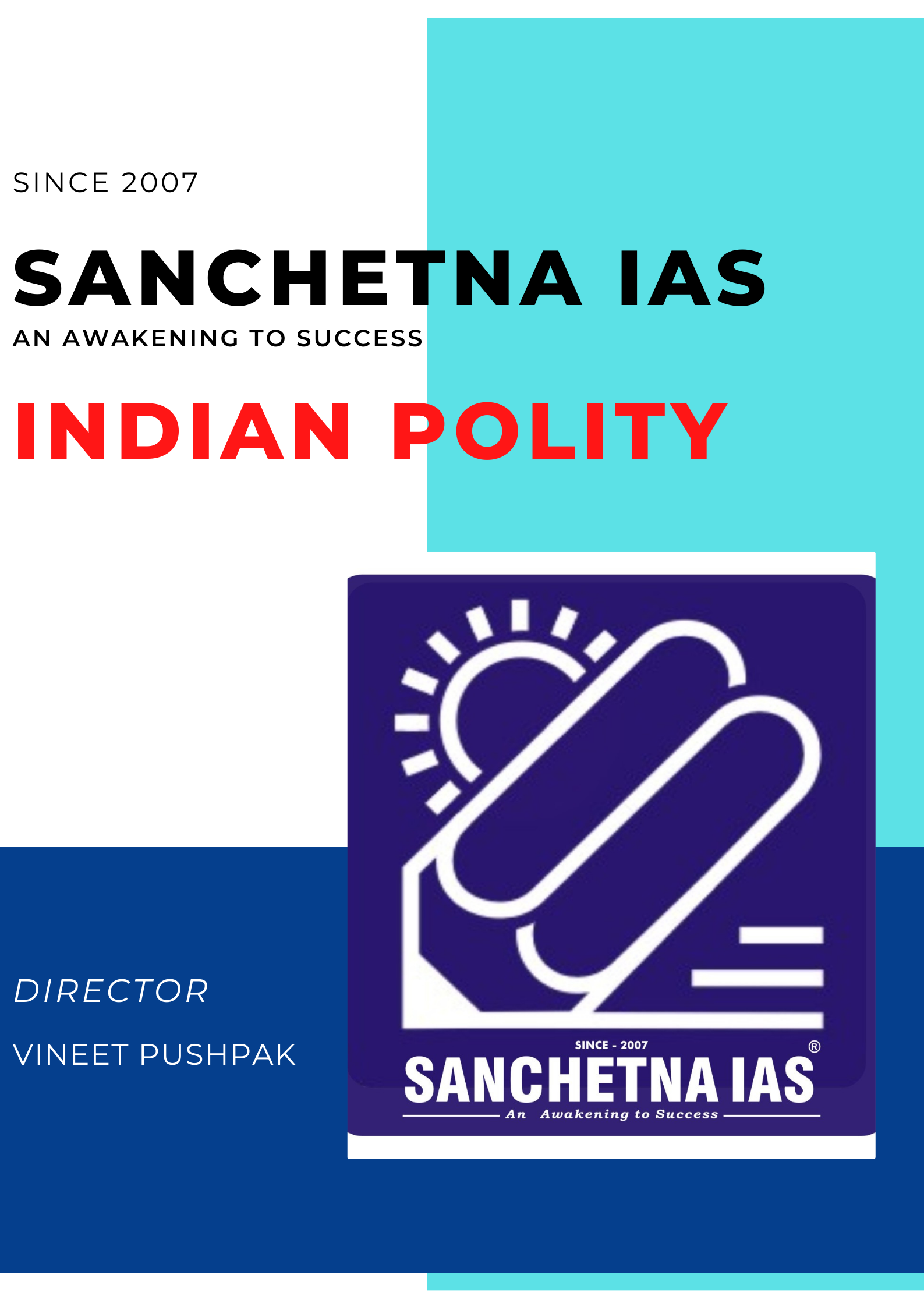
INDIAN POLITY
India is the largest democracy in the world! It is difficult at the same time crucial to maintaining law and order. The Indian Government is created by the Constitution of India. Constitution of India is the longest written constitution of any sovereign country.
Let’s explore the topics with Sanchetna IAS to learn more about the Indian Polity and Governance.
To know more come and become a member of Sanchetna IAS ---an awakening to success.
Basic information about the subject and syllabus
Indian polity in mains syllabus is mentioned in GS Paper - 2. There is no dedicated paper for this but GS Paper 2 covers most of the questions from Polity governance.
This section(Indian polity) of UPSC Mains is considered as one of the toughest papers of mains. Its dynamicity makes more intolerable. Indian Polity, Social Justice, Governance are topics mentioned in the syllabus for this section. Regular study of newspaper with special focus on recent amendments, articles related to rights , schemes, poverty, hunger, mal nutrition etc. are some of the important topics that should demand sound knowledge. The role of newspapers in this paper is quite important as questions asked are mostly from the current issues.
Topics for study from where questions are asked regularly in mains
1. Indian Constitution—historical underpinnings, evolution, features, amendments, significant provisions and basic structure.
2. Functions and responsibilities of the Union and the States, issues and challenges pertaining to the federal structure, devolution of powers and finances up to local levels and challenges therein.
3. Separation of powers between various organs dispute redressal mechanisms and institutions.
4. Comparison of the Indian constitutional scheme with that of other countries.
5. Parliament and State legislatures—structure, functioning, conduct of business, powers & privileges and issues arising out of these.
6. Structure, organization and functioning of the Executive and the Judiciary—Ministries and Departments of the Government; pressure groups and formal/informal associations and their role in the Polity.
7. Development processes and the development industry —the role of NGOs, SHGs, various groups and associations, donors, charities, institutional and other stakeholders.
8. Welfare schemes for vulnerable sections of the population by the Centre and States and the performance of these schemes; mechanisms, laws, institutions and Bodies constituted for the protection and betterment of these vulnerable sections.
9. Issues relating to development and management of Social Sector/Services relating to Health, Education, Human Resources.
10. Issues relating to poverty and hunger.
11. Important aspects of governance, transparency and accountability, e-governance applications, models, successes, limitations, and potential; citizens charters, transparency & accountability and institutional and other measures.
12. Role of civil services in a democracy.
Questions asked in CSE Mains 2022
1. “The most significant achievement of modern law in India is the constitutionalization of environmental problems by the Supreme Court.” Discuss this statement with the help of relevant case laws.
2. “Right of movement and residence throughout the territory of India are freely available to the Indian citizens, but these rights are not absolute. “ Comment.
3. To what extent, in your opinion, as the decentralisation of power in India changed the governance landscape at the grassroots?
4. Discuss the role of the Vice –Presidents of India as the chairman of the Rajyasabha
5. Discuss the role of the National Commission for Backward Classes in the wake of its transformation from a statutory body to a constitutional body.
6. The Rights of Persons with Disabilities Act, 2016 remains only a legal document without intense sensitisation of government functionaries and citizens regarding disability. Comment.
7. Discuss the procedures to decide the disputes arising out of the election of a Member of the Parliament or State Legislature under The Representation of the People Act, 1951. What are the grounds on which the election of any returned candidate may be declared void? What remedy is available to the aggrieved party against the decision ? Refer to the case laws.
8. Discuss the essential conditions for exercise of the legislative powers by ne Governor. Discuss the legality of re-promulgation of ordinances by the Governor without placing them before the Legislature.
9. While the national political parties in India favour centralisation, the regional parties are in favour of State autonomy.” Comment.
10. Critically examine the procedures through which the Presidents of India and France are elected of
11. Discuss the role of the Election Commission of India in the light of the evolution of the Model Code of Conduct.
12. Do you agree with the view that increasing dependence on donor agencies for development reduces the importance of community participation in the development process ? Justify your answer.
13. Besides the welfare schemes, India needs deft management of inflation and unemployment to serve the poor and the underprivileged sections of the society. Discuss.